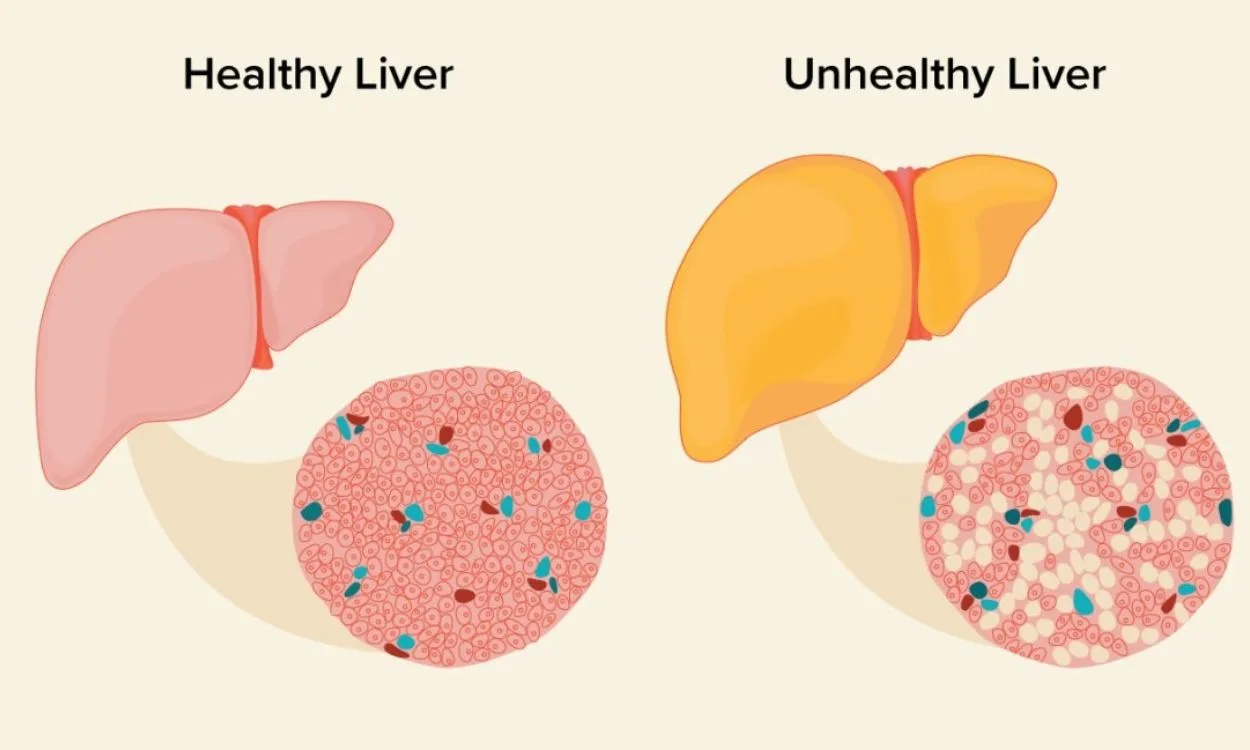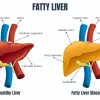Is Fatty Liver Hereditary?
Fatty liver, also known as hepatic steatosis, is a condition characterized by the accumulation of excess fat in the liver. It is often associated with lifestyle factors such as obesity, unhealthy diet, and sedentary behavior. However, many people wonder if fatty liver can be hereditary. In this article, we will explore the connection between genetics and fatty liver and provide insights into managing this condition.
Understanding Fatty Liver
Before delving into the hereditary aspect, let’s first understand what fatty liver is and how it develops. The liver plays a crucial role in metabolism, detoxification, and the production of essential substances in our body. When fat accumulates in the liver cells, it can impair liver function and lead to various health problems.
Causes of Fatty Liver
While lifestyle factors are the primary cause of fatty liver, certain genetic factors can also contribute to its development. Here are some key points to consider:
- Genetic Predisposition: Research suggests that certain genetic variations may increase the likelihood of developing fatty liver. These variations can affect how the body processes and stores fat, making some individuals more susceptible to the condition.
- Family History: If you have close family members, such as parents or siblings, who have been diagnosed with fatty liver, there is a higher chance that you may inherit a genetic predisposition to this condition.
Lifestyle Factors and Fatty Liver
It’s important to note that genetics is not the sole determinant of fatty liver. Lifestyle factors play a significant role in its development as well. Here are some lifestyle factors commonly associated with fatty liver:
- Obesity: Being overweight or obese is a significant risk factor for fatty liver. Excess body weight, particularly around the abdomen, can increase fat accumulation in the liver.
- Unhealthy Diet: Consuming a diet high in refined carbohydrates, sugars, and saturated fats can contribute to the development of fatty liver. These dietary choices promote fat deposition in the liver.
- Alcohol Consumption: Excessive alcohol intake can lead to alcoholic fatty liver disease. Alcohol is toxic to liver cells and can cause inflammation and fat accumulation.
- Sedentary Lifestyle: Lack of physical activity can contribute to weight gain and insulin resistance, both of which are associated with fatty liver.
Managing Fatty Liver
If you suspect that you have fatty liver or have been diagnosed with the condition, it is essential to take appropriate steps to manage it. Here are some strategies that can help:
- Healthy Diet: Adopting a balanced and nutritious diet is crucial for managing fatty liver. Focus on whole foods, including fruits, vegetables, lean proteins, and whole grains. Limit your intake of sugary foods, processed snacks, and saturated fats.
- Weight Management: Losing excess weight can significantly improve fatty liver. Aim for gradual and sustainable weight loss through a combination of dietary changes and regular physical activity.
- Regular Exercise: Engaging in regular physical activity can help reduce liver fat and improve overall liver function. Aim for at least 150 minutes of moderate-intensity aerobic exercise per week, along with strength training exercises.
- Limit Alcohol: If you have alcoholic fatty liver disease, it is crucial to avoid or limit alcohol consumption. Consult with a healthcare professional for guidance on safe levels of alcohol consumption.
- Medical Intervention: In some cases, medical intervention may be necessary to manage fatty liver. Consult with a healthcare professional who can provide appropriate guidance and treatment options based on your specific condition.
Fitpaa – Your Partner in Health and Fitness
While fatty liver can have genetic components, lifestyle factors play a significant role in its development and management. Fitpaa is a comprehensive health and fitness platform that can assist you in achieving your wellness goals. With personalized fitness plans, expert guidance, and real-time monitoring, Fitpaa can help you navigate your journey towards a healthier liver and overall well-being.
To experience the benefits of Fitpaa and take control of your health and fitness, download the Fitpaa app today. Our team of fitness coaches, nutritionists, and doctors will provide the support and guidance you need to achieve your goals. Don’t let fatty liver hold you back – start your journey towards a healthier life with Fitpaa now!









